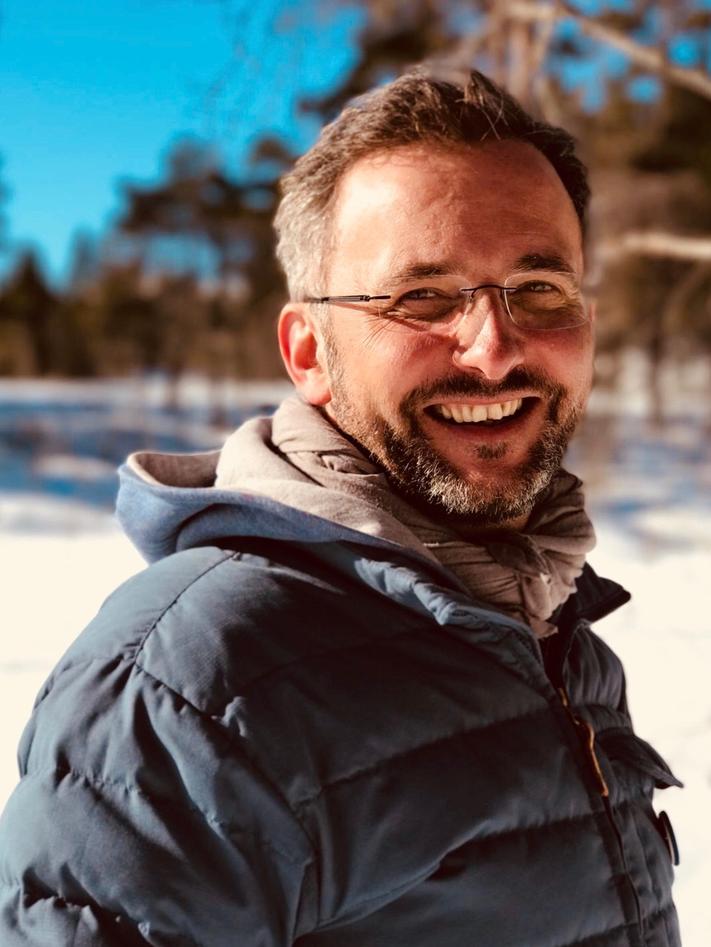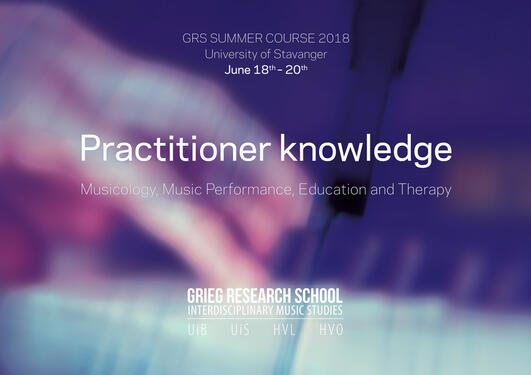Wolfgang Schmid
Learning in vivo – about practitioner knowledge, learning as social participation, and becoming a reflective music therapy practitioner
Hovedinnhold
My professional identity as a music therapist deeply roots in and is nurtured by continuous music performance- and music therapy-practice. This in turn informs my practice, as well as my research, lectures, and the development of theory. It guides my collaborations with clients and colleagues from music therapy, and other disciplines.
Examples out of music therapy practice with people and their families, confronted with life changing events and conditions, will be the reference point for this keynote, aiming to explore potentials, challenges, means and limitations of practitioner knowledge from the perspective of a musician and music therapist.
- When the improvised singing of a woman with profound loss of memory after a brain surgery becomes the leading activity for her rehabilitation process (Schmid, 2016),
- when improvising to the breathing pattern of a man in coma makes mutual contact and interaction with him possible (Schmid, 2017),
- when health-musicking (Stige, 2012) with people becomes the primary source for the generation of knowledge:
How can this affect and contribute to the understanding and development of music therapy practice, research and education?
How can this inform the personal and professional development of music therapy practitioners, and contribute to their continuous professional development?
I will mainly refer to two concepts in this keynote: Firstly, the one of learning as social participation by the French sociologist Etienne Wenger (1998; 2014). In his social theory of learning and the concept of communities of practice, Wenger (1998, 5) outlines four dimensions, deeply interconnected and mutually defining each other: learning as doing (practice), learning as belonging (community), learning as becoming (identity), learning as experience (meaning). And secondly, Christopher Johns conceptualizations on becoming a reflective practitioner in health care (2009), with a perspective on learning through experience and gaining new insights or changed perceptions of self and practice in a cyclical, iterative process of doing, documentation, evaluation, and doing again.
Discussing Wenger´s and John´s perspectives with respect to the conference´s topic, an understanding of practitioner knowledge as active, social, embodied, entrusted, aesthetic, negotiated, and reflective process of participation within a community of music therapy-practice becomes apparent.
The tensions inherent in the interplay of doing, belonging, becoming, experiencing and reflecting need to be continuously negotiated and balanced by the participants of the community of practice, to form and reform music therapy practice, research and education.
Key Questions
- How can practitioner knowledge affect and contribute to the understanding and development of music therapy practice, research and education?
- How can practitioner knowledge inform the personal and professional development of music therapy practitioners, and contribute to their continuous professional development?
- How can this promote the further development of music therapy as a distinct profession within health care services?
Recommended Reading
Johns, Chr. (2009) Becoming a reflective practitioner. Chapter 1: Exploring reflection, pp 3-23. (3rd edition). United Kingdom: Wiley & Sons, Ltd, Publications. Available via Ebookcentral.
Schmid, W. (2017). Being together – Exploring the modulation of affect in improvisational music therapy with a man in a persistent vegetative state – a qualitative single case study. Health Psychology Report, 5(2), 186–192. doi: h ps://doi.org/10.5114/hpr.2017.63843
Wenger, E. (1998) Communities of practice. Learning, Meaning, and Identity. Introduction: A social theory of learning, pp 3-17. Cambridge: Cambridge University Press.
Further Reading
Schmid, W. (2016) A Journey to Memories: Improvisational Music Therapy in the Neurological Rehabilitation of a Woman with Aquired Brain Injury (ABI). In: Cheryl Dileo (eds) Advanced practice in medical music therapy: Case reports, pp 232-238. Cherry Hill, NJ: Jeffrey Books 2015 ISBN 978-0-9770278-2-8
Stige, B. (2012) Health Musicking: A Perspective on Music and Health as Action and Performance. In: Raymond MacDonald, Gunter Kreutz and Laura Mitchel (eds) Music, Health, and Wellbeing. Oxford: Oxford University Press. DOI:10.1093/acprof:oso/9780199586974.003.0014
Wenger-Trayner, E. & Wenger-Trayner, B. (2014) Learning in a landscape of practice: A framework. In: Etienne Wenger-Trayner, Mark Fentin-O´Creevy, Steve Hutchinson, Chris Kubiak, and Beverly Wenger-Trayner (eds) Learning in Landscapes of Practice, pp 13-29. London: Routlegde
Biography
Wolfgang Schmid is a musician and music therapist. He is Associate Professor for Music Therapy at the Grieg Academy, Faculty of Fine Art, Music and Design, University of Bergen, and works with people in end-of-life-care at the Sunniva Centre for Palliative Care at Haraldsplass Deaconess Hospital in Bergen.
He has extensive experience as a music therapist in intensive and palliative care, in both institutional and home-based settings. Within the last 20 years his genuine interest as music therapy practitioner and researcher is still on the multi-perspective and collaborative work with people confronted with life changing events and conditions, and their music.

